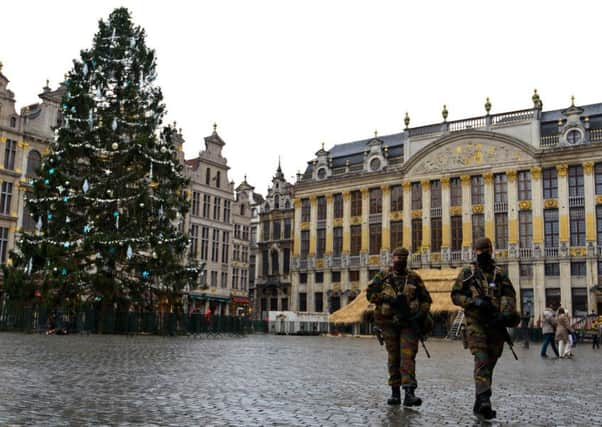Leader: Beware a knee-jerk reaction on arming police


The appalling attacks on Paris have raised a host of questions about how to deal with the menace of terrorism and how to ensure the safety of our citizens.
That suicide bombers and gunmen could cause such carnage with such apparent ease just the other side of the English channel has left no-one in any doubt about the severity of the threat.
Advertisement
Hide AdAdvertisement
Hide AdEvents of the past tell us the Scotland is not immune from atrocities. The Lockerbie bombing and, more recently, the terror attacks on Glasgow Airport are vivid reminders of that.
It follows that those charged with protecting the public should think long and hard about the implications of events in Paris on Scotland.
Therefore the fact that the Scottish Police Federation (SPF) has devoted time and effort to looking at the issue is welcome. Less so, however, are the conclusions arrived at by the Federation.
A strongly worded statement issued after the SPF met at its Glasgow headquarters painted a bleak picture of Scottish policing and the deficiencies of our politicians.
“We need only look at the recent horrific events in Paris, and particularly the tactical capabilities and the speed at which they were deployed, to come to the conclusion that Scotland is woefully under-equipped, under-resourced and under-prepared,” was the stark analysis of the SPF’s Calum Steele.
According to Steele, the performance of Police Scotland is suffering as a result of budget constraints. Already hampered by the closure of police stations and fewer police embedded in the community, overworked officers are struggling to gather intelligence that could prove crucial in the fight against terrorism. Since its formation through the merger of eight regional services, Police Scotland has been dogged by controversy. The challenges facing the unified force have also been well-documented. For those hoping that matters will improve, there was absolutely no reassurance offered by Steele’s damning verdict on Scotland’s political classes.
Steele claimed politicians “lack the maturity” to debate police resources, accusing elected representatives of “scoring political points” while ignoring the realities of policing and the impact of austerity.
It is rare for a body such as the SPF to issue such a strongly worded statement. And given the serious nature of the short-comings identified by the federation, politicians must sit up and take notice.
Advertisement
Hide AdAdvertisement
Hide AdBut whether Steele’s plea for more routinely armed officers offers a solution to the challenges faced by the police is another matter entirely.
Steele was careful to emphasise that the SPF was not calling for a “fully armed police service (at this time)”. But it is difficult to escape the impression that there was something of a post-Paris knee-jerk about his call.
The outgoing chief constable, Sir Stephen House, was roundly criticised when it emerged that armed officers had taken to the streets without adequate public scrutiny. The sort of significant change of policing culture advocated by the SPF should not be done without proper consultation. And, whatever one’s view of politicians, it should not be done without the agreement of democratically elected representatives.